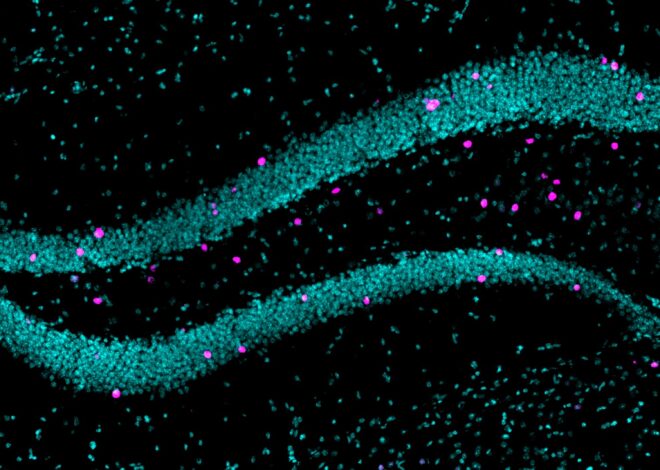
Can’t sleep? Insomniacs may experience accelerated brain aging

People with chronic insomnia may experience faster declines in memory and thinking skills as they age—along with brain changes that can be seen on imaging scans—than people who do not have chronic insomnia, according to a study published in Neurology.
The study found that people with chronic insomnia—trouble sleeping at least three days a week for three months or more—had a 40% higher risk of developing mild cognitive impairment or dementia than those without insomnia, which is the equivalent of 3.5 additional years of aging. The study does not prove that insomnia causes brain aging, it only shows an association.
“Insomnia doesn’t just affect how you feel the next day—it may also impact your brain health over time,” said study author Diego Z. Carvalho, MD, of the Mayo Clinic in Rochester, Minnesota, and a member of the American Academy of Neurology. “We saw faster decline in thinking skills and changes in the brain that suggest chronic insomnia could be an early warning sign or even a contributor to future cognitive problems.”
The study tracked a group of cognitively healthy older adults—2,750 people with an average age of 70—for an average of 5.6 years. Of participants, 16% had chronic insomnia.
At the start of the study, participants were asked whether they had been sleeping more or less than usual during the past two weeks. They also took yearly thinking and memory tests, and some had brain scans to look for white matter hyperintensities—areas where small vessel disease may have damaged brain tissue—and for amyloid plaques, a protein that can build up and is linked to Alzheimer’s disease.
During the study, 14% of the people with chronic insomnia developed mild cognitive impairment or dementia, compared to 10% of those who did not have insomnia.
After accounting for factors like age, high blood pressure, use of sleep medications and a diagnosis of sleep apnea, they found that people with insomnia were 40% more likely to develop mild cognitive impairment or dementia than those without insomnia. They also had faster declines in tests measuring different thinking skills.
Among those with insomnia, researchers determined the type: those getting less sleep than usual in the past two weeks; or those getting more sleep than usual in the past two weeks.
People who reported getting less sleep than usual were more likely to have lower cognitive test scores at the beginning of the study, comparable to being four years older. They also had more white matter hyperintensities and amyloid plaques. For amyloid, the effect was similar to what is seen in people with the APOE ε4 gene, a known genetic risk factor.
People who reported getting more sleep than usual, on the other hand, were more likely to have fewer white matter hyperintensities at the start of the study.
Some groups were especially vulnerable. Participants who carry the APOE ε4 gene—linked to higher Alzheimer’s risk—showed steeper declines in memory and thinking skills.
“Our results suggest that insomnia may affect the brain in different ways, involving not only amyloid plaques, but also small vessels supplying blood to the brain,” Carvalho said. “This reinforces the importance of treating chronic insomnia—not just to improve sleep quality but potentially to protect brain health as we age. Our results also add to a growing body of evidence that sleep isn’t just about rest—it’s also about brain resilience.”
A limitation of the study was that insomnia diagnoses came from medical records, which do not capture undiagnosed cases or reflect how severe symptoms are.
More information:
Neurology (2025).
Citation:
Can’t sleep? Insomniacs may experience accelerated brain aging (2025, September 10)
retrieved 10 September 2025
from https://medicalxpress.com/news/2025-09-insomniacs-brain-aging.html
This document is subject to copyright. Apart from any fair dealing for the purpose of private study or research, no
part may be reproduced without the written permission. The content is provided for information purposes only.



